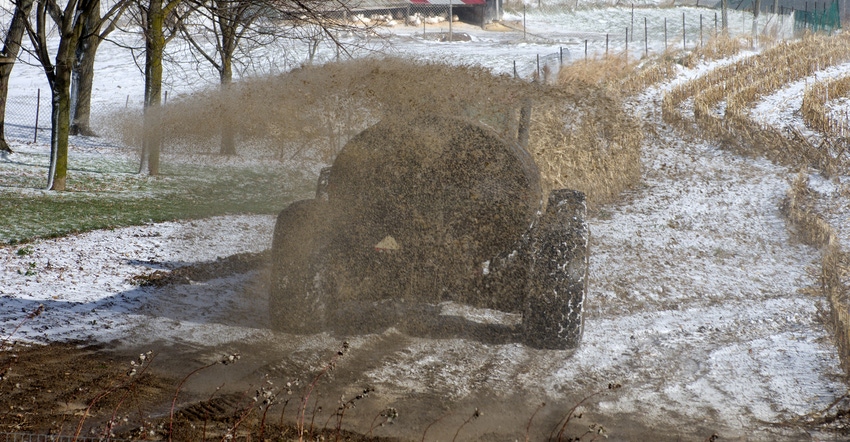March 26, 2020

With snowmelt, saturated soils and rain in the forecast, the Wisconsin Department of Agriculture, Trade and Consumer Protection is reminding farmers to check for the risk of runoff from fields before spreading manure. A free online tool called the Runoff Risk Advisory Forecast identifies if there is a high or low chance for runoff in your area. Spreading manure on fields when there is a high risk of runoff can result in the manure traveling into streams and threatening water quality.
“A good nutrient management plan helps you determine where you can spread and the application rate. The runoff risk tool is to help you determine when it’s safe to spread,” says Ryan Erisman, DATCP’s nutrient management planning specialist.
The Runoff Risk Advisory Forecast provides maps showing short-term runoff risk for daily field application planning, taking into account soil saturation and temperature, weather forecast, snow and crop cover, and slope. The National Weather Service updates the forecast three times a day.
Farmers should contact their crop consultant, county land conservation office or the Department of Natural Resources for help identifying alternatives to high-risk spreading. Alternatives can include stacking manure away from lakes, rivers, drinking water wells, areas with sinkholes and exposed bedrock. If farmers must spread manure, crop consultants and county conservationists can help identify fields where the risk is lower. A directory of county conservation offices is available on the Wisconsin Land and Water website.
Reporting manure spills
Remember, all agricultural and livestock operations must report spills or runoff affecting water to the 24-hour emergency spills hotline at 800-943-0003. More information about preventing and planning for manure spills is available on the DNR website.
Source: DATCP, which is solely responsible for the information provided and is wholly owned by the source. Informa Business Media and all its subsidiaries are not responsible for any of the content contained in this information asset.
You May Also Like




